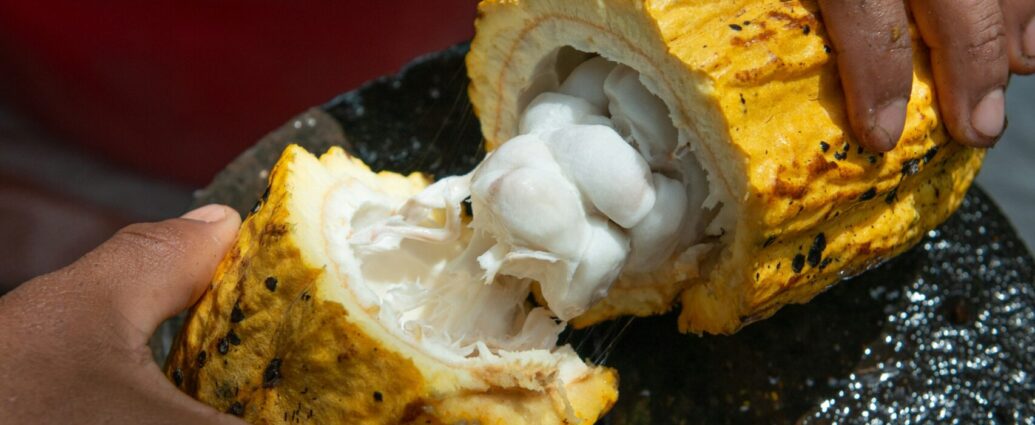Katie Storrie
Over the Easter season, chocolate eggs reached a price increase of nearly 50 per cent or more as cocoa production farms in Africa faced major heat waves damaging their crops.
Extreme drought and weather conditions resulting in insufficient conditions for crops to grow have caused a global chocolate shortage.
VULNERABLE NATIONS AND RISING PRICES
According to the UN’s Food and Agricultural Organisation, 99.9 per cent of all cocoa globally is grown in countries that are more likely to experience extreme weather conditions.
In the last week of March, low availability of cocoa beans triggered prices to increase to £6700 a ton — three times the cost of a chocolate egg in March 2020.
“As climate change worsens, more support will undoubtedly be needed to protect their livelihoods.”
Amber Sawyer, an analyst at the Energy and Climate Intelligence Unit, said: “Wealthy nations like the UK can provide financial and technical support to developing countries to help their farmers better cope with these extremes.
“However, as climate change worsens, more support will undoubtedly be needed to protect their livelihoods and to keep the flow of cocoa beans, tea and rice coming into the UK.”
The increased costs are negatively impacting workers at every stage in the supply chain, and it will only become more difficult for the UK to provide support to cocoa producers.
HUMAN-INDUCED CLIMATE CHANGE
Researchers at the University of Cape Town found that West Africa will continue to experience extreme heat waves without collaborative efforts to reduce fossil fuels and human-induced activities that contribute to climate change.
Human-induced action contributing to climate change includes the burning of fossil fuels, insufficient waste management and deforestation.
“Rainfall extremes are become more likely and intense in West Africa”
Weather conditions will become more unsuitable for crops to grow, making it difficult for farmers to sustain the growth it already has.
Izadine Pinto, from the University of Cape Town and author of a World Weather Attribution group, said: “There were reports from farmers in Ivory Coast that the heat weakened the cocoa crop.”
The report found that heat waves will continue to have a detrimental effect, not only with the production of cocoa beans in West Africa, but also the production of other imported goods including sugar and tea.
El NIÑO
El Niño is another explanation for the cost of rising easter egg prices over the Easter period: a recurring, natural fluctuation of weather patterns that causes global temperatures to rise. Due to climate change, these temperatures can reach an extreme.
This makes it even more challenging for farmers to produce and grow their crops, particularly in West Africa, as El Niño occurs in the tropical Pacific.
According to the National Oceanic and Atmospheric Administration, El Niño occurs every two to seven years and will often last between nine months and a year.
West Africa has been experiencing El Niño since June 2023.
Ben Clarke, an expert on extreme weather at the Grantham Institute at Imperial College, said: “rainfall extremes are become more likely and intense in West Africa, making life more challenging for highly vulnerable communities in the region, amplifying climate injustice. And making chocolate more expensive.”
This increases our confidence in this overall message: rainfall extremes are becoming more likely and intense in West Africa, making life more challenging for highly vulnerable communities in the region, amplifying climate injustice. And making chocolate more expensive. (9/10)
— Ben Clarke (@BennethClarke) March 25, 2024
It is common for chocolate makers to buy beans and pre-order produce months in advance.
In February, chocolate manufacturers speculated on the challenges ahead, as chocolate prices are expected to continue to rise.
READ NEXT:
-
JUST STOP OIL ACTIVIST REMANDED TO PRISON FOR SIX MONTHS
-
CONTROVERSIAL ROSEBANK OIL FIELD GIVEN GO-AHEAD BY REGULATORS
-
ECOFEMINISM: THE FIGHT FOR OUR PLANET IS FUNDAMENTALLY FEMINIST
Featured image courtesy of Rodrigo Flores via Unsplash. No changes were made to this image. Image license found here.

